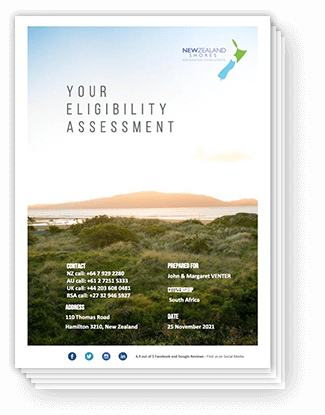Health requirements to move to New Zealand
Are you ASH?
You must have an Acceptable Standard of Health
Are there health requirements to apply for a visa? In most cases, and depending on how long you intend to stay in New Zealand, applicants for a New Zealand visa must be ‘ASH”, or have an Acceptable Standard of Health. This is to ensure that people entering New Zealand do not impose excessive costs on New Zealand's health and education services, but also that they do not pose a threat to public health.
Unless you are coming to New Zealand for medical treatment, being declared ‘ASH’ also ensures that once you are granted entry, you are for example able to study (if on a student visa) or work (if on a work visa).
Depending on the type and duration of visa you are applying for, your country of citizenship, and the countries you have visited in the last few months, you may or may not have to provide a medical certificate and/or a chest X-Ray.
Where can I get a medical examination?
If you are overseas, Immigration New Zealand has a panel of doctors/institutions which should be used for your examination. Onshore (in New Zealand), any Medical Practitioner legally apt to practice can complete your examination.
Your personal Adviser will provide instructions on what documents to seek exactly, and who to get them from. Medical certificates are expensive and only valid for 3 months. There are rare exceptions for which extensions are granted. Generally, you should ensure you do things in the right order to avoid unnecessary costs.
What if I have health issue?
If your medical examination reveals an issue, you or any of your family members may not have an Acceptable Standard of Health, and you may be referred to an Immigration New Zealand medical assessor, or your application may be declined. Your Adviser may also sometimes request a medical waiver which is considered on a case-to-case basis and naturally, is not always granted. Talk to an adviser today if you would like to discuss your concerns regarding a pre-existing medical condition, and get an idea of whether it is likely to have a negative impact on your migration plans.



